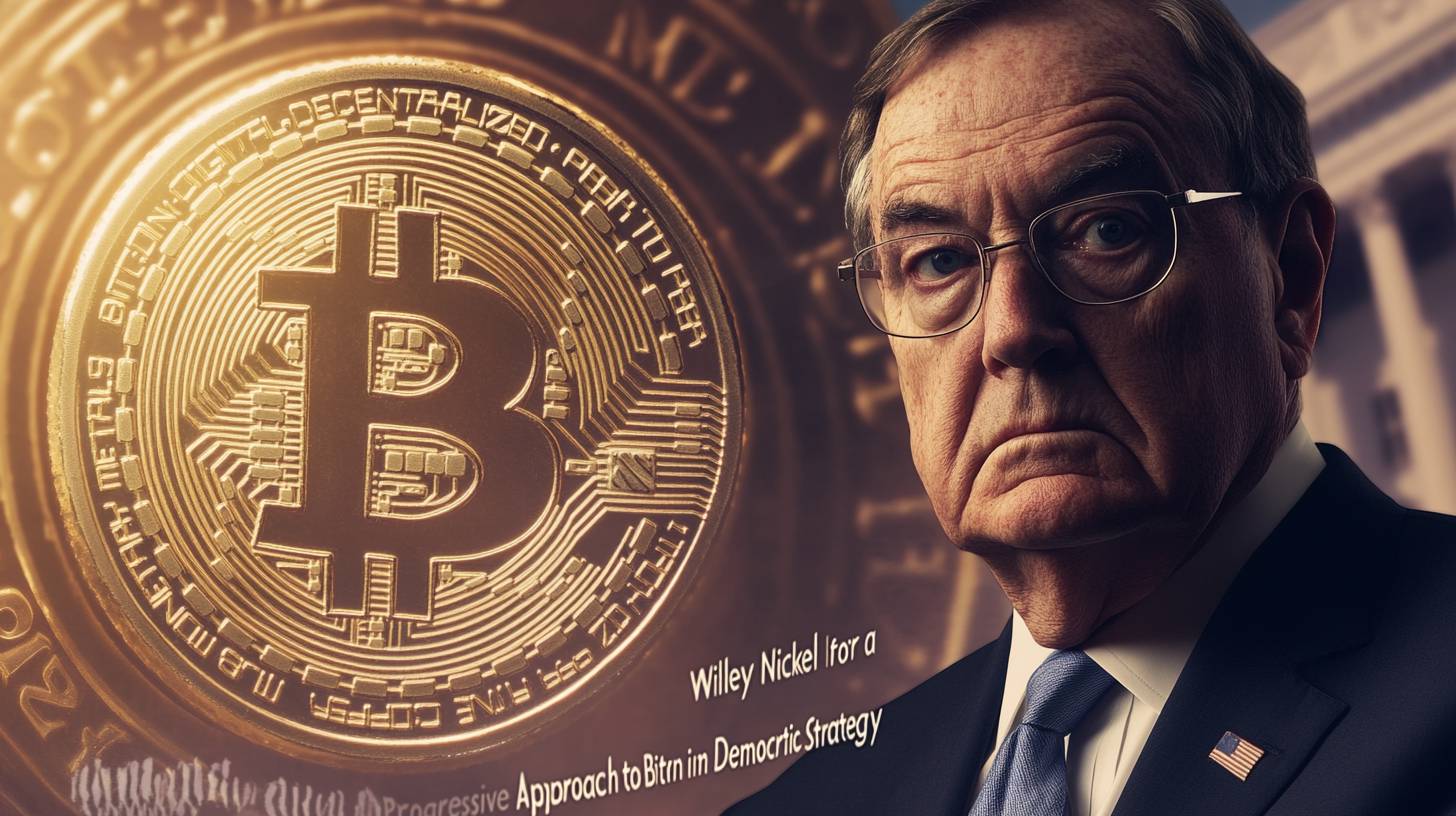
Shifting Perspectives of Democrats on Cryptocurrency
Looking forward, Nickel imagines a future where the Democratic Party takes on a more crypto-friendly attitude, aligning with the increasing number of Americans with digital asset ownership. He believes that by engaging with industry experts and adopting pro-innovation strategies, the party can establish itself as a frontrunner in the digital economy. This strategy not only promotes economic development but also tackles essential issues like financial inclusion and consumer safety.
Recently, Rep. Nickel wrote a letter to the Democratic National Committee (DNC), signed by 28 Democrats, which included 14 congressional members. The correspondence calls for a new strategy concerning digital asset policy, urging the party and its presidential candidate to adopt this new direction. Suggested strategies involve integrating pro-digital asset wording into the party’s platform, appointing a vice-presidential candidate knowledgeable in digital asset matters, selecting a pro-innovation SEC chair, and engaging meaningfully with the industry.
Rep. Wiley Nickel: I had a wonderful experience. I appreciated engaging with individuals at all levels involved in this topic and, most importantly, advocating the progressive argument for crypto and the significance of our work as Democrats in Congress.
Source: bitcoinmagazine.com
Rep. Nickel emphasized the necessity of maintaining a bipartisan approach, cautioning against the issue becoming a political tool. He pointed out that individuals like Donald Trump seek to politicize the matter, potentially delaying the industry’s progress in Congress by years. Despite political obstacles, DeFi and Bitcoin are anticipated to endure no matter who is in power. Nevertheless, it is crucial to implement clear regulations to safeguard consumers, preserve jobs, and promote innovation in the sector.
For readers in Australia, the developments in the US political landscape provide insightful lessons on how bipartisan endeavors can influence the future of cryptocurrency regulations. As Australia continues to work through its own regulatory framework, the US experience serves as a valuable reminder of the importance of partnership and open communication in developing a flourishing digital asset ecosystem.
Collaborative Endeavors and Future Aspirations
He also noted the increasing acknowledgment within the Democratic Party regarding the need for a refreshed outlook on digital asset regulation. Regardless of one’s feelings toward crypto, it is a permanent fixture, and the focus should be on consumer protection, nurturing innovation, and enhancing US competitiveness. Rep. Nickel is actively striving to build a coalition of supportive Democrats who share this vision.
At the forefront of Bitcoin 2024, Representative Wiley Nickel (D-NC) presented perspectives on the Democratic Party’s changing view regarding Bitcoin and digital currencies. He stressed the significance of guiding the party toward a more Bitcoin and crypto-friendly stance. This transition is vital as the digital asset environment continues to expand and affect global finance.
The advancements achieved in the House of Representatives are clear, as 71 Democrats allied with Republicans on FIT21, the digital asset market structure bill. This bipartisan backing, including endorsements from figures like Nancy Pelosi, indicates a hopeful horizon for Bitcoin in the political sphere.
Nickel’s emphasis on bipartisan collaboration is vital, particularly in a political environment where topics can rapidly become divisive. He stresses that the future of digital assets should not belong to any single party, as the advantages of blockchain technology and cryptocurrencies transcend political lines. By maintaining an open and inclusive dialogue, Nickel aims to avert the industry from becoming a “political football” that could obstruct advancement.
Rep. Wiley Nickel’s initiatives to promote bipartisan support for cryptocurrency legislation signify a notable transformation in the political atmosphere. By collaborating across party divisions, he seeks to ensure that the United States leads in financial innovation. The FIT21 bill, which received backing from both parties, is a prime example of this cooperative effort. It highlights the necessity of creating a regulatory structure that shields consumers while fostering technological progress.

